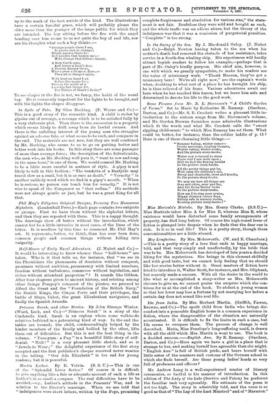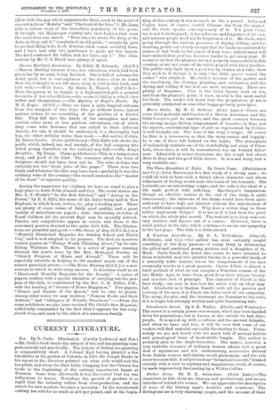Ida from India. By Mrs. Herbert Martin. (Griffith, Ferran, Browne,
and Co.)—The spoilt child from India who brings dis- comfort into a peaceable English home is a common experience in fiction, where the disagreeables of the situation are naturally accentuated. It is difficult to fix the limits in such a case, but Ida seems to overpass them. The process of change is well described. Maria, Miss Penelope's long-suffering maid, is drawn with all the skill which Mrs. Martin is wont to use. The book is a decided success.—English Ann. By R. Ramsay. (Gardner, Darton, and Co.)—Here again we have a girl in a place that is strange to her, and making herself less agreeable than she might. "English Ann" is full of British pride, and bears herself with little sense of the manners and customs of the German school in which she finds herself. Are these young ladies' heads so very full of professors and officers ?
Mr. Andrew Lang is a well-experienced master of literary ceremonies, so tactful is his manner of introduction. In this edition of The Lady of the Lake (Service and Paton) he performs the familiar task very agreeably. His estimate of the poem is not too high. The story is admirably told, and the verse is as good as that of "The Lay of the Last Minstrel" and of "Marmion." (How wide the gap which separates the three, even in the point of execution, from" Rokeby "and "The Lord of the Isles"!) Mr. Lang tells a curious story of the immediate popularity of the poem. It brought the Macgregor country into such fashion that even the ccach-hire was raised. "Ever since he wrote The Lady of the Lake, as they call it," complained an old guide, "everybody goes to see that filthy hole, Loch Katrine, then comes round by Luss, and I have had only two gentlemen to guide all this season. The devil confound his ladies, and his lakes, say I." The illus- trations by Mr. C. S. Brock have plenty of spirit.























































 Previous page
Previous page